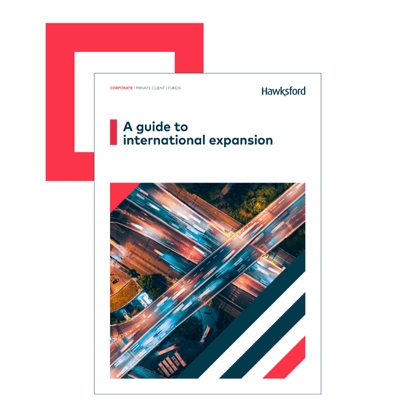Hosting the largest number of regional headquarters (HQ) in the Middle East, the United Arab Emirates (UAE) is becoming a destination of choice to do business and access key markets in South Asia and Africa.
Dubai, in particular, has attracted 70% of Fortune 500 companies to establish their regional HQ in the city. For international companies centralising Middle East and global operations, there are several advantages to setting up your regional HQ in Dubai, which we will discuss in this article. Hosting the largest number of regional headquarters (HQ) in the Middle East, the United Arab Emirates (UAE) is becoming a destination of choice to do business and access key markets in South Asia and Africa.
Why choose Dubai for regional headquarters?
Dubai benefits from being part of an environment built on strong stability and global competitiveness. The UAE is moving towards a more diversified and sustainable economy, guided by the ‘We the UAE 2031’ vision and other initiatives. It is recognised as the most economically stable country, first among 89 nations by the US News & World Report.
Further, the UAE ranks seventh in the 2024 World Competitiveness Ranking by the International Institute for Management Development (IMD). It has maintained its leading position in the Middle East and North Africa for the eighth consecutive year.
Among the Gulf Cooperation Council (GCC) countries, the UAE is also a leading economic partner to the African continent. This strong performance can give you confidence in the region's long-term prospects.
Dubai can thus be a suitable starting point for managing and expanding your business to the wider UAE. From tax benefits to extensive free zone support, here are four key reasons why you may choose Dubai for regional HQ operations:
1. Strategic location and global connectivity
Dubai has a well-developed infrastructure that supports its global business and travel operations. World-class ports play a key role in cementing the city's position as a global trade and logistics hub. The Jebel Ali Port, for example, remains one of the most advanced and well-connected ports in the world, linking the Middle East with Europe, Asia and Africa.
In 2024, the port handled 15.5 million Twenty-foot Equivalent Units (TEUs) of cargo, marking an increase of one million TEUs compared to 2023. Its highest throughput since 2015, this level of operational efficiency may not only lower shipping costs but also enhance your overall competitiveness when operating out of Dubai.
Aviation is another advantage for Dubai. Currently, over two-thirds of the world’s population can be reached within an eight-hour flight from the UAE, making it suitable for regional operations. Building on this, Dubai is futureproofing and looking ahead with plans to enhance its capabilities further. One major project is the upgrade of Al Maktoum International Airport, which is set to expand significantly.
This includes the addition of five parallel runways, 400 aircraft gates and the integration of modern aviation technology, increasing its capacity to serve up to 260 million passengers per year. For perspective, Dubai International Airport (DXB) welcomed 86.9 million passengers last year.
As Dubai continues to invest in and expand its logistical capabilities, it delivers increasing global connectivity and a stable, future-ready environment which you can tap into.
2. Tax benefits and incentives
Dubai offers a competitive tax environment, with a 9% corporate tax rate on the net profit of the business exceeding AED375,000, one of the lowest globally. Below is how Dubai compares with other regional hubs from a taxation standpoint:
| Tax category | Dubai (UAE) | Singapore | Hong Kong |
|
Corporate tax rate |
9% for most businesses, subject to specific conditions | 17%, with effective rates often lower due to incentives and exemptions | 16.5% on assessable profits for corporations |
|
Value-added tax (VAT) / Goods and Services Tax (GST) |
5% | 9% | None |
|
Personal income tax |
None | Progressive rates up to 24% | Progressive rates up to 17% |
Bear in mind for multinational enterprises (MNEs) with annual global revenues of €750 million or more, a domestic minimum top-up tax (DMTT) of 15% recently came into effect on 1 January 2025.
To support the larger entities operating in Dubai, there are targeted incentives such as a refundable tax credit currently available for qualifying salary costs. This is a measure that supports the recruitment and retention of C-suite executives and other high-impact roles. Eligible companies performing research and development (R&D) in Dubai may be entitled to a refundable tax credit ranging from 30-50%, beginning 1 January 2026.
The UAE has also partnered with other countries and signed over 140 double taxation agreements (DTAs), ensuring that companies are not taxed twice on the same income. When setting up your regional HQ in Dubai, this means not only favourable tax conditions but also having a reliable gateway to a range of markets.
3. A world-class business environment
Dubai's world-class business environment is a result of its strategic initiatives, supportive regulations and state-of-the-art infrastructure, making it well-positioned for regional HQ operations. One key factor driving its success as a global business hub is the presence of designated free zones, such as the Dubai International Financial Centre (DIFC).
The DIFC now has 6,920 active companies, with over 1,800 new registrations in 2024. This growth highlights the increasing confidence international investors, particularly hedge funds, have in Dubai’s market. Businesses, including holding and management companies, also choose the DIFC for its independent legal framework that is based on international standards of justice and English common law.
With benefits such as 100% foreign ownership and full repatriation of profits, Dubai has over 20 free zones catering to different industry needs. You may consider setting up your business in popular free zones such as the:
- Jebel Ali Free Zone (JAFZA): Among the world’s largest, focusing on trade, manufacturing and logistics.
- Dubai Internet City (DIC): Tailored for technology firms, providing a hub for innovation and digital business.
- Dubai Multi Commodities Centre (DMCC): Offering a platform for businesses in sectors like Artificial Intelligence (AI), energy, gaming, gold, diamonds and agricultural commodities.
- Dubai Media City (DMC): Designed for media, advertising and creative industries, fostering collaboration among related enterprises.
Further, Dubai is firmly establishing itself as an international destination for business and networking. In fact, the city had secured over 400 events in 2024, ranging from conferences to corporate meetings. This milestone represents a 20% year-on-year increase in successful bids and demonstrates its status as a destination for high-profile gatherings. With more than 200,000 delegates expected to attend these events, Dubai continues to attract global talent and expertise.
4. Access to talent and expertise
Drawn by the high quality of life, there is an expanding pool of qualified talent in Dubai. Various work visas support entrepreneurs, investors and other professionals to relocate here, with residency ranging from two to ten years.
Dubai is also strengthening its position to nurture talent with the upcoming Dubai National University, an institution backed by an AED4.5 billion investment. The university aims to rank among the top 200 global universities over the next two decades.
Additionally, up to 15 new branch campuses may be set up in the coming years to cater to the increasing demand for higher education in Dubai. The emirate currently has over 50 international institutions, many of which are branch campuses.
The range of work visas with a strong educational landscape can ensure that businesses remain competitive and have consistent access to a diverse, highly skilled workforce.
Setting up your regional office in Dubai
If you're considering opening a regional HQ, Dubai is a land of opportunity with the infrastructure that can directly benefit businesses in the long run. However, you will need to be prepared for the process of forming and maintaining an entity here. For example, while English is widely used in business, Arabic remains the official language for important legal documents and government communications.
Each emirate has its own set of regulatory rules and free zones may have their own specific laws. Regardless of where you plan to take your business, we can help you manage these challenges and fulfil the requirements of setting up your regional HQ entity.
From our office in Dubai, our expert team have assisted multinationals through the setup process and can deliver strategic guidance as you expand your business in the UAE or internationally. For more information on our entity formation and administration services, please get in touch with us.
Frequently asked questions
Do I need a local partner to open a HQ in Dubai?
In free zones and for most sectors in mainland Dubai, a local partner will not be required for your regional HQ setup. For clarity, we can ascertain if 100% foreign ownership applies to you and streamline the rest of your company registration in the UAE.
Is physical office needed for company formation?
Yes, a physical office address is mandatory for mainland companies. In free zones, you have the option to choose coworking spaces and virtual offices. If you require a dedicated office in Dubai, we can handle the arrangements of securing a suitable space and ensure regulatory requirements are met.
What is the best location for a business setup in Dubai?
If you’re setting up your regional HQ in the mainland, Business Bay and Downtown Dubai remain the top choices due to their proximity to the DIFC and Dubai World Trade Centre (DWTC). There is already a rich ecosystem of corporate offices and professional services in these locations.
Dubai South is another area to keep an eye on as it undergoes several infrastructure projects. For example, it will be close to the upcoming Al Maktoum International Airport, the world’s largest airport upon completion.
For free zones, you can choose from hubs such as the DIFC, DMCC and JAFZA, depending on your business activities.

Speak to our experts today
Get in touch to find out how our Corporate team can support you with your business needs.
Updated on








